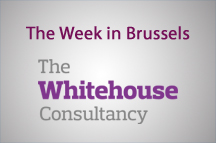 Creating a seamless Digital Single Market (DSM) is one of the flagship initiatives of Jean-Claude Junker’s European Commission (EC) which is employing significant political capital and resources into “helping Europe to make a successful transition towards a competitive digital economy”. In order to accomplish such a goal, the EC, in its Digital Single Market Strategy (DSMS - May 2015), identified 16 actions it aims to undertake before the end of 2016 – a sizeable tack for the EC Digital Single Market team led by Commissioner Ansip.
Creating a seamless Digital Single Market (DSM) is one of the flagship initiatives of Jean-Claude Junker’s European Commission (EC) which is employing significant political capital and resources into “helping Europe to make a successful transition towards a competitive digital economy”. In order to accomplish such a goal, the EC, in its Digital Single Market Strategy (DSMS - May 2015), identified 16 actions it aims to undertake before the end of 2016 – a sizeable tack for the EC Digital Single Market team led by Commissioner Ansip.
First set of initiatives
On Monday, the Digital Single Market began to materialise as the EC presented a first set of proposals, including two Directives on new rules on digital contracts to protect consumers who buy digital content and goods online; a Regulation on the cross-border portability of online content services (meaning that we will be able to temporarily watch Netflix series or sports broadcast we are subscribed to while travelling throughout the EU; and an action plan to revise EU copyright rules, with legislative proposals expected in 2016.
Copyright new rules promise controversy…
 Amongst the initiatives presented this week, the reform of the copyright framework promises to be the most controversial dossier. Reactions have not been slow in coming. Politico, an EU news website, echoed the concerns raised by Europe’s creative and cultural sectors about the proposed action plan. If done the wrong way, it suggested, the new rules could pose a threat to the future of an industry mostly formed of micro and small enterprises, which relies on copyrights to compete. Other voices warned that the tech industry (including Spotify and Netflix) could be badly hit if consumers were allowed to shop for better subscription deals in other EU countries - which is precisely the value the Single Market is meant to add for consumers.
Amongst the initiatives presented this week, the reform of the copyright framework promises to be the most controversial dossier. Reactions have not been slow in coming. Politico, an EU news website, echoed the concerns raised by Europe’s creative and cultural sectors about the proposed action plan. If done the wrong way, it suggested, the new rules could pose a threat to the future of an industry mostly formed of micro and small enterprises, which relies on copyrights to compete. Other voices warned that the tech industry (including Spotify and Netflix) could be badly hit if consumers were allowed to shop for better subscription deals in other EU countries - which is precisely the value the Single Market is meant to add for consumers.
…and more controversy over the revision of the Telecoms package
Another major action included in the DSMS is the revision of the Telecoms Package that the Telecommunications Council of the EU (Telecoms configuration) is discussing today. If the revision of EU copyright rules will pose a major test for the EC ability to deliver the DSM, reforming the telecoms rules will be an even greater challenge. The Telecoms Package legislates highly important and controversial issues such as the management and allocation of spectrum which is a scarce resource and fundamental for the appropriate functioning of the DSM.
Spectrum allocation also represents a substantial source of revenues for Member States. In previous years, we’ve witnessed two fierce battles between those who argue that the EU should gain more power over spectrum management in order to address the current fragmentation in the internal market for electronic communications and these European capitals determined to retain full control over this valued resource; and between the ever growing demand for greater allocation of spectrum by the powerful mobile industry and a retreating, but still highly influential, Digital TV sector – with other spectrum users anxiously watching and fearing losing more access to spectrum as a result.
Only the Council can unlock progress
Since Member States have, in the past, blocked some attempts to give Brussels more powers over spectrum management, the opinion of the Council will be carefully examined by the EC before it finalises its proposal for a revision of the Telecoms Package (expected by summer 2016).
The DSMS is certainly ambitious, and the reward for Europe, substantial - so are the challenges that will have to be overcome. A legitimate question remains in the air. Will the EC be able to deliver it?












